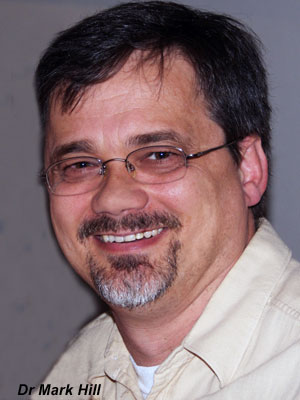Medicine Learning and Teaching Forum 2012 - Online Projects: Difference between revisions
| Line 129: | Line 129: | ||
===Plaigarism=== | ===Plaigarism=== | ||
{| class="wikitable collapsible collapsed" | |||
! Student advice on Plaigarism | |||
|- | |||
| [[File:Mark_Hill.jpg|50px]] First Read the help page [[Help:Copyright_Tutorial|Copyright Tutorial]] | |||
Currently all students originally assigned to each group are listed as equal authors/contributors to their project. If you have not contributed the content you had originally agreed to, nor participated in the group work process, then you should contact the course coordinator immediately and either discuss your contribution or request removal from the group author list. Remember that all student online contributions are recorded by date, time and the actual contributed content. A similar email reminder of this information was sent to all current students. | |||
Please note the [https://my.unsw.edu.au/student/atoz/Plagiarism.html Universities Policy regarding Plagiarism] | |||
In particular this example: | |||
:"Claiming credit for a proportion of work contributed to a group assessment item that is greater than that actually contributed;" | |||
Academic Misconduct carries penalties. If a student is found guilty of academic misconduct, the penalties include warnings, remedial educative action, being failed in an assignment or excluded from the University for two years. | |||
Please also read [[Help:Copyright_Tutorial|Copyright Tutorial]] with regard to content that can be used in your project. | |||
|} | |||
===Peer Assessment=== | ===Peer Assessment=== | ||
Revision as of 07:35, 30 November 2012
Online Projects
Developing online student group project work.
- Wednesday 7 December 2012
Draft Page - notice removed when complete.
Abstract
This presentation will discuss the experiences in developing small science student group projects (3 to 5 students) that are prepared online in an interactive manner throughout the semester. This group assessment item replaced a previous poster presentation project. This assessment has now been running for a number of years, and the current presentation will describe the pedagogy of this assessment as well as associated practical issues. Key practical issues discussed include: initial tutorials to train students, literature researching strategies, copyright issues, plagiarism and peer assessment.
Introduction
Pedagogically, I see great value in designing group assessment items for students as this really tests their ability to work collaboratively and to determine their own strengths and weaknesses, as well as those of others, in a team environment. Please note that many students initially do not like this form of assessment, as it relies on them making to much of an "ongoing contribution" (more work than they intended) and they are also concerned about project "free riders" (academic plagiarism).
In the past, designing group assessment items often involved working inside practical class times, or preparation of posters/talks on a specific topic either inside class times or with an option for some independent work outside those times. I have previously used both these techniques in designing course assessments.
Currently, I have designed a semester-long group assessment project that allows students an option to work together over an extended period researching topics that relate directly to the course goals. There are many different components to this project process, and given the limited time for my presentation, I will only be able to touch on a few key concepts outlined in the abstract. Note that there is also a Medicine online group assessment project, that works a little differently in structure from the model described here.
Further details and links are made available here for you to explore further in your own time, and I am always happy to respond to emailed questions.
--Mark Hill 11:32, 27 November 2012 (EST)
Project Design
- Students are introduced to group project in the first lecture when going through the course outline.
Practical Issues
Training Tutorials
The following collapsed tables provide starting points for students during project work, you also have tutorials built into practical classes and practice exercises for individual assessmet items.
|
|
Literature Researching Strategies
Copyright
Plaigarism
| Student advice on Plaigarism |
|---|
 First Read the help page Copyright Tutorial First Read the help page Copyright Tutorial
Currently all students originally assigned to each group are listed as equal authors/contributors to their project. If you have not contributed the content you had originally agreed to, nor participated in the group work process, then you should contact the course coordinator immediately and either discuss your contribution or request removal from the group author list. Remember that all student online contributions are recorded by date, time and the actual contributed content. A similar email reminder of this information was sent to all current students. Please note the Universities Policy regarding Plagiarism In particular this example:
Academic Misconduct carries penalties. If a student is found guilty of academic misconduct, the penalties include warnings, remedial educative action, being failed in an assignment or excluded from the University for two years.
|
Peer Assessment
Concluding Remarks
Given the brief time available for this presentation, I would suggest that you open the various collapsed tables and links shown on this current page for reading in your own time.
Links
Online Projects
- ANAT2341 Embryology Projects 2009 - 2012
- ANAT3231 Cell Biology Projects 2009 - 2012
Glossary Links
- Glossary: A | B | C | D | E | F | G | H | I | J | K | L | M | N | O | P | Q | R | S | T | U | V | W | X | Y | Z | Numbers | Symbols | Term Link
Cite this page: Hill, M.A. (2024, June 2) Embryology Medicine Learning and Teaching Forum 2012 - Online Projects. Retrieved from https://embryology.med.unsw.edu.au/embryology/index.php/Medicine_Learning_and_Teaching_Forum_2012_-_Online_Projects
- © Dr Mark Hill 2024, UNSW Embryology ISBN: 978 0 7334 2609 4 - UNSW CRICOS Provider Code No. 00098G
